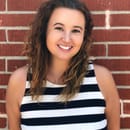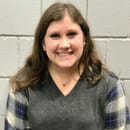The views expressed in this article are the author’s own and do not represent the views of Her Campus FSU.
Driving 12 hours (13 if you include gas and food breaks) may not sound appealing to most people, myself included. But never before have I felt so emotional or passionate about an issue that directly affects myself and those around me: gun control. I’m not the type to protest. If my waiter brings me the wrong dish, I won’t even correct them for fear of being rude. So how could I possibly go out into the world and literally wave my opinion around in the air? I know now that it was because I had never felt so strongly about something before that I needed to let the world know my stance on it. So, here’s my stance: I believe that legislative action needs to take place in order to limit gun violence. I feel so strongly about this issue that I willingly endured this 13-hour drive in order to stand in the middle of the streets of our nation’s capital as part of the March For Our Lives.
Despite the cold Maryland wind, the streets of D.C. were alive and vibrant early in the morning on March 24. The entire city seemed to be thriving with the ideas of the movement; everywhere you looked people were walking around carrying signs with bold messages like “protect kids not guns” or “vote them out.” Despite my initial thought that the protest would consist of mostly students, there were people of all ages and backgrounds present. High school and college students may have seemed like the majority, but there were plenty of parents and teachers showing their support, along with children as young as elementary school age. Everyone there was united in their interest to keep the schools and streets of America safe from unnecessary violence that can easily be avoided with stricter gun laws.
Courtesy: Elizabeth Dorwart
The infamous school shooting in Parkland, Florida, last month sparked this movement and the memory of the 17 lives lost that day were a constant, haunting reminder of what is at stake if legislative action is not taken. A major theme of the event was that no adult would be speaking on the main stage, only children. This entire march was planned by the Marjory Stoneman Douglas survivors who have taken this traumatic event and used its power as a catalyst for one of the biggest social movements we’ve seen in a long time. MSD students shared their own speeches, which included emotional appeals for help and determined calls to action, many claiming that if something is not done by the politicians, then the people would “vote them out.”
Alongside the MSD students on stage were students and children from all over the country that have been personally affected by needless gun violence. Students from cities like Chicago, Los Angeles and Washington D.C. shared their moving memories of loved ones they had lost and what it was like to grow up in cities plagued by bullets, where gun violence is all too common. As the speakers cried on stage, so did the audience around the city. These speakers represented the many activists who have been fighting for gun reform for years, but because they are minorities or come from low-income neighborhoods, their concerns may have often been overlooked and seen as an issue unimportant to the majority of the population. The March For Our Lives movement includes not only privileged victims of gun violence but anyone who has survived, no matter where they come from.
The reason the march was formed is tragic, but there was a strong sense of hope in many of the speeches. Hope that the politicians in office will see the change the people want and will finally take action. When speakers were too emotional to continue, chants would erupt from the audience to give them the courage to continue sharing their stories. This sense of hope and community was so strong throughout the enormous crowd that the entire city seemed a little kinder throughout the day. A city like Washington D.C. may not necessarily be known for its compassion, but the words spoken by those young speakers on stage seemed to stay with everyone throughout the day. If this is the effect these survivors have had on the world already, then this seems to be only the beginning of something big.


